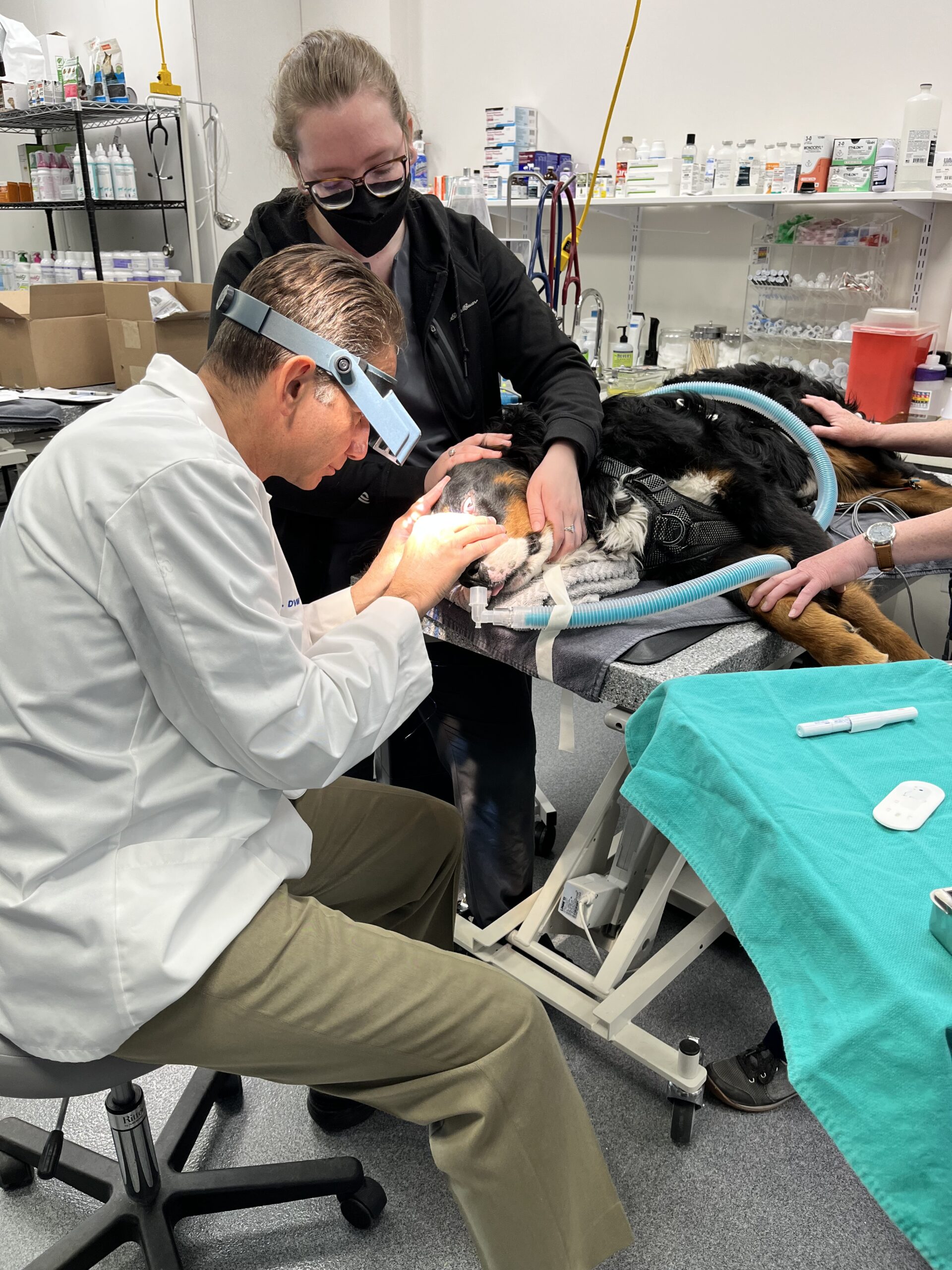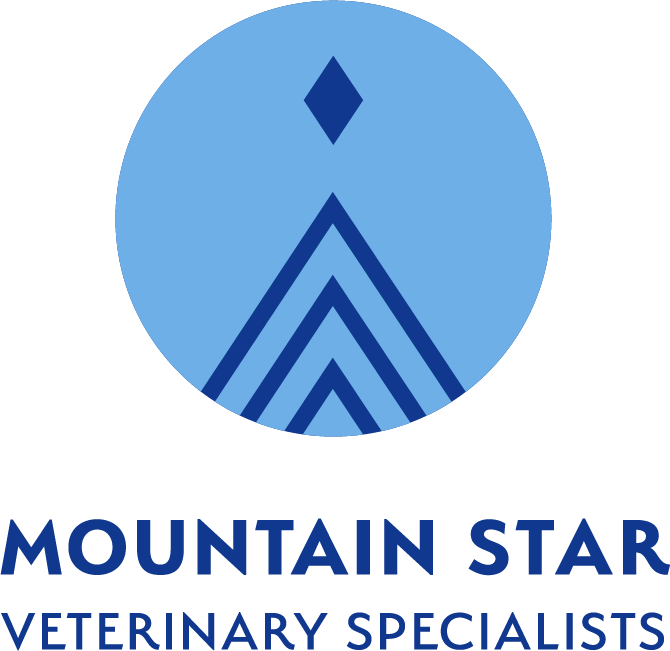
Cataracts surgery in dogs is so successful, squirrels need to be on guard again.
3 min read
“I love hearing the stories from clients about how vision restoration has improved their dog’s quality of life,” says Dr Matthew Chavkin, Founder of Mountain Star Veterinary Specialists.
“Clients have told me things like: ‘he plays with his toys again,’ ‘he is more playful and seems 5 years younger,’ ‘he loves going on walks again,’ ‘he saw me from across the yard,’ and ‘the squirrels in my backyard have to be on guard again.’ This surgery is the only one that routinely prompts a hug from a client,” says Dr Chavkin.
Cataract surgery successfully restores good long-term post-operative vision in 90% of dogs with cataracts.
Cataracts are a clouding of the lens that blinds dogs by blocking a useful image from landing on the retina. The lens lives inside the eye and is visible in the pupil. When you are looking at the pupil, you are looking at the lens.
Causes of cataracts
Genetic factors, diabetes mellitus, and ocular injury are the most common causes of cataracts in dogs.
80% of diabetic dogs will develop blinding cataracts within 16 months of diagnosis, regardless of how well-regulated the patient is. Dogs with diabetes mellitus and dogs with genetic cataracts enjoy the same 90% success rate.
Symptoms of cataracts
Early diagnosis and treatment can help to prevent further vision loss. Pets can’t tell us if they have symptoms that are common in human cataracts, including blurred vision, loss of depth perception, and difficulty seeing at night.
But pet owners will see differences in behavior that indicate a pet’s vision is impaired, including:
-Cloudiness in the eye.
-Sensitivity to light.
-Changes in behavior, such as bumping into obstacles, inability to find a thrown ball, and becoming more withdrawn.
The procedure
Surgeon experience and state-of-the art equipment are important in achieving the best outcomes. At Mountain Star, we use the same phacoemulsifier, operating microscope, and surgical equipment that is used in human hospitals.
The cataract is gently emulsified with directed ultrasonic power and vacuumed from the eye through a small 2.8 mm incision. An artificial lens is folded up and injected into the eye through that same micro incision to provide the clearest focused vision post-operatively.
Dogs are screened pre-operatively for concurrent eye and health problems that could negatively impact the outcome. This includes general bloodwork and urinalysis to rule out undiagnosed systemic disease. We also perform an ocular ultrasound and electroretinogram to assess the structural and functional health of the retina.
Pricing:
If you’re considering cataract surgery for your pet, we can give you an estimate over the phone before scheduling a consultation. We believe in being upfront about costs, though they might vary a bit due to things like medications or lab work.
During your consultation, we’ll provide an official estimate tailored to your pet’s needs. This includes the eye exam, screening tests, surgery, and six months of follow-up care. We’re committed to thorough care, even after surgery, to ensure the best recovery.
We believe that collaboration is key. We work closely with you, your pet, and your veterinarian for the best outcomes. We are here to help you discuss what course of care is best will work best for your pet and for you. Call us at 720-500-5878 with any questions.
What to expect after cataract surgery:
In most cases, dogs will regain good vision within hours of surgery.
-They will need to wear an Elizabethan collar (cone) for 7-10 days to prevent them from rubbing their eye.
-The owner will need to administer eye drops that control inflammation and prevent infection.
-The pet might experience some discomfort after surgery, but this can be managed with pain medication.
-Vision will gradually improve over the next few weeks.
Although relatively rare, cats can also develop cataracts, which are usually the consequence of severe chronic inflammation inside the eye. These cases are generally not helped by cataract surgery. The inflammation is too great, even in the early stages of the disease. Luckily, blind cats rely on their other acute senses and usually adjust to the blindness.
I am happy to offer advice. Email or call me any time: mchavkin@mountainstarvs.vet
At Mountain Star, our goal is to heal pets’ skin and eye conditions so clients can enjoy their pets as healthy companions.
We truly appreciate your referrals. We’re here to support you, your clients, and your patients. We’re in this together.
*As of May 2023. Subject to change.
